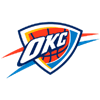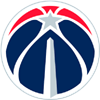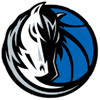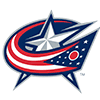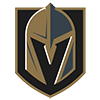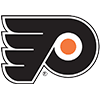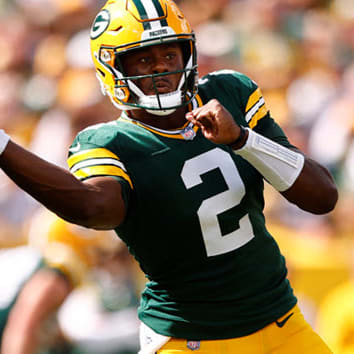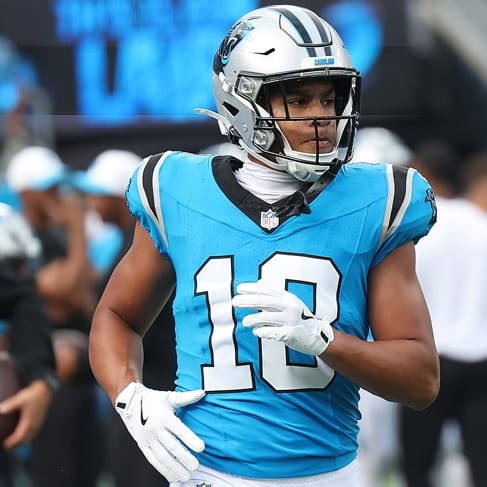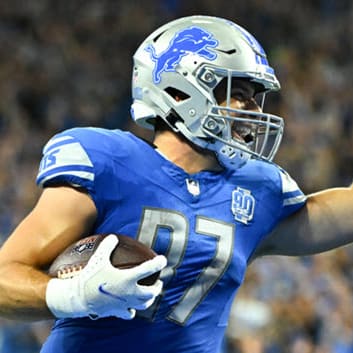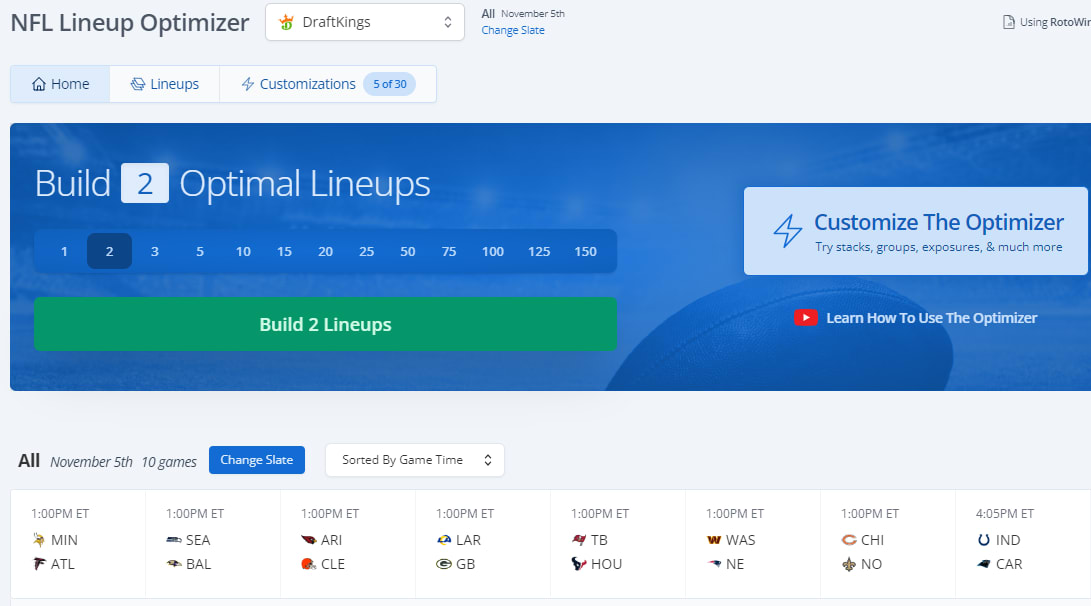UnderdogFantasy will unveil its initial 2023 NFL best ball tournament contest Friday, Feb. 10. The Big Board, as it's called, will feature $1 million in prizes and is sure to be among the most talked-about subjects of the offseason in the fantasy football scene.
Sign up for Underdog to receive a free 6-month subscription to RotoWire and first deposit match up to $100 with promo code RWNFL. Claim this special offer now at https://play.underdogfantasy.com/pc-MyVn4cbt6l.
This article will break down the 2023 rookie class, which to this point hadn't been introduced to the 2023 player pool in Underdog contests. The rookies have not yet established an ADP, so an accurate grasp of the players and their upsides is required independent of ADP input.
There are definitely rookies in this year's class who will play important roles in the outcome of 2023 fantasy contests, but it's also important to not chase false hype that could easily evaporate in a matter of weeks – be it due to the combine in March or the pro days afterward. It's important to valuate these players on solid details rather than narratives that could easily shift if some player or another is given or denied blessing from Mel Kiper or whoever else.
This article projects the top 12 rookies worth drafting in an 18-round, 12-team 0.5PPR format. Each blurb will project the NFL Draft round slot for the player – ie their projected draft capital – as well as their projected best ball ADP.
- Bijan Robinson, RB, Texas (6-0, 222)
You've probably heard of Robinson by now, but even if you haven't you'll soon become familiar. Robinson projects as the highest-ranked running back prospect since Saquon Barkley in 2018. Robinson won't go as high as Barkley did, but the top 10 picks might be within reach. Robinson has a three-down skill set, including the potential for above-average pass catching, and a compelling combination of bulk and speed. It's not clear what weight and 40 time Robinson will log in athletic testing, but a mid-to-low 4.4 at 225 or so pounds would not surprise. Robinson runs with all the power you'd expect of his frame and more, so paired with his speed he projects as a runner who can provide both volume and explosiveness.
Robinson will not be cheap in your draft. Some industry drafts see him go as high as the first round. Jonathan Taylor and Breece Hall are reminders that even elite running back prospects can start slow in the NFL, but that Robinson is projected to go higher than Taylor or Hall did might make Robinson's case more analogous to Barkley and Ezekiel Elliott, who both saw mammoth rookie-season workloads as top-five picks. It's possible that Robinson sees something like 300 carries and 60 catches in 2023 – he's expected to settle into that sort of workload at some eventual point. The risk, him being a rookie, is that it he might not reach that full form immediately, but it is a question of when and not if.
Projected NFL Draft round: 1 (Top 15)
Projected best ball ADP: 11.0 to 16.0
2. Jahmyr Gibbs, RB, Alabama (5-11, 200)
Gibbs won't go nearly as high as Robinson in the real draft or in fantasy drafts but likely won't be cheap, either. Gibbs isn't as complete as Robinson, who might be the faster of the two even at upwards of 25 pounds heavier, and similarly Gibbs can't begin to imitate the power that Robinson can run with. But Gibbs could be a star NFL running back in his own right, his pass-catching abilities in particular grading at an all-decade level.
With Gibbs the comparison is inevitable: Alvin Kamara. Gibbs is substantially lighter than Kamara – more likely to weigh in at 200 than the 214 Kamara did – but however much Gibbs checks in lighter than Kamara should only affect the kind of workload he can withstand. As much as Gibbs aesthetically resembles Kamara, frame-wise he might sooner compare to Austin Ekeler. Ekeler holds up as a workhorse at just 200 or so, but capped at 200 carries in the process. The good news is that Gibbs projects to be near the Kamara-Ekeler tier for pass-catching ability, which means Gibbs is a credible candidate to make up for less than 200 carries a year by annually pushing for 80 receptions.
Gibbs should stay in the first 50 picks or so of the NFL draft, so whatever team selects him should look to give him a major workload right away. Even in Underdog's 0.5PPR scoring Gibbs should be in the RB2 conversation.
Projected NFL round: 2 (Top 50)
Projected best ball ADP: 58.0 – 70.0
3. Jordan Addison, WR, USC (6-0, 175)
Addison has a slight build and that hurts his projection on jumpballs, but his college production and tape are incredible, to the point that that he projects as a WR1 in the NFL even if he's smaller than some of the others. Addison and fellow 2023 receiver Jaxon Smith-Njigba both posted true sophomore seasons that rank at an all-time level, and in both cases their production is so strong that there's reason to assume they are above-average size-adjusted athletes, even if they are not as big or fast as some other recent success cases at wide receiver.
Projected NFL round: 1 (Top 20)
Projected best ball ADP: 75.0 – 85.0
4. Jaxon Smith-Njigba, WR, Ohio State (6-1, 200)
Smith-Njigba is sometimes referred to as a slot specialist but that's incorrect. He just happened to play in the slot but not because he needed to. Between himself, Chris Olave and Garrett Wilson someone had to play the slot, but any of them could have played any of the reps. It's completely incidental that Smith-Njigba ended up with the slot task, the same way Justin Jefferson played the slot for LSU even though he clearly was an elite outside wide receiver the whole time. Just as Addison posted absurd age-19 production at Pittsburgh, Smith-Njigba posted bigger numbers in 2021 than either of Olave or Wilson. Parris Campbell once posted bigger numbers than Terry McLaurin at Ohio State, but Smith-Njigba displayed more downfield ability than Campbell did. Olave and Wilson alone are strong reason to suspect Smith-Njigba will prove a standout starting receiver, too.
Projected NFL round: 1 (Top 20)
Projected best ball ADP: 75.0 – 85.0
5. Quentin Johnston, WR, TCU (6-4, 205)
Johnston is regarded by some as the WR1 of this class, even ahead of Addison and Smith-Njigba. This article disagrees with such assessments but Johnston is definitely a very good prospect, and likely a more toolsy one than either of Addison or Smith-Njigba. At a listed 6-foot-4 Johnston is much bigger than the other two, and there's a chance he's also the fastest of the trio. Johnston was a big-play machine at TCU, routinely making big plays downfield while offering standout yards-after-the-catch ability. Johnston might set a combine record for wide receiver wingspan, so he should project well as a jumpball target too. Between the three receivers mentioned so far, Johnston is likely the best downfield threat and with some margin to spare. The reason he's generally ranked behind the other two is because it's not clear how rapidly Johnston might draw targets compared to them. Addison and Smith-Njigba could both emerge as 100-catch candidates in the NFL, whereas Johnston more so probably needs to make it work as an 80-catch sort of player, the gap in receptions theoretically bridged by Johnston doing more per-target in terms of yardage and touchdowns.
Projected NFL round: 1
Projected best ball ADP: 82.0 – 88.0
6. Zach Charbonnet, RB, UCLA (6-1, 220)
Charbonnet can't imitate Robinson's explosiveness or Gibbs' pass-catching ability, but Charbonnet could still turn out an above-average three-down running back in the NFL. He has the frame to withstand volume from scrimmage, and his production at both Michigan and UCL A strongly imply a standout skill set as both a runner and pass catcher. Teams looking for a three-down power presence could come to be quite fond of Charbonnet. The main issue in the meantime is it's tough to tell where his draft market might be. A second-round placement would be huge for his value, but a fourth-round landing – which would be a surprise – would be a major hit to his projection. If Charbonnet gets the work, then expect him to do something useful with it.
Projected NFL round: 2-3
Projected best ball ADP: 95.0 – 105.0
7. Kayshon Boutte, WR, LSU (6-0, 205)
Boutte was regarded as a first-round lock and the potential WR1 as recently as the summer, but an injury-plagued dysfunctional 2022 season has his stock lowered. Some amount of character concern might have accumulated over the past two years, too, but it's unclear how much of that might stick and how much might turn out to be unimportant. If Boutte's talent is allowed to play according to its merit then whatever team drafts him will treat him like a first-round pick, because he'll look like one. Boutte notably has more of a traditional 'WR1' kind of frame than Smith-Njigba and especially Addison, so he arguably projects as a more consistent red-zone presence than those two.
Projected NFL round: 1-2
Projected best ball ADP: 90.0 – 120.0
8. Devon Achane, RB, Texas A&M (5-9, 185)
Achane has a great shot of going ahead of Charbonnet, but at a listed 185 pounds Achane is not a candidate to take up the workload Charbonnet can. Achane projects for much less running in general than Charbonnet, so he'll need to get it done as a pass catcher. The good news is Achane seems plenty competent as a pass catcher, and he's a candidate to prove himself the fastest running back in the NFL upon his arrival. Achane could run in the 4.2-second range in the combine 40, even if he weighs in more around 195. There's some concern in the fact that Achane's efficiency as both a runner and pass catcher fell off in 2022 – he was much more explosive splitting carries with Isaiah Spiller the prior two years – but the takeaway there is probably just the already-obvious fact that Achane is better suited to a rotational role than he is a workhorse role. If Achane can prove explosive enough, though, he can still prove a fantasy standout even if his workload from scrimmage lags compared to other running backs near his ADP. I'm listing his ADP projection as a very wide range because it remains to be seen whether Achane can report to the combine with a traditionally viable frame. If Achane shows up at 185 it will be a concern for his workload projection. With that said, there are no workload concerns that would apply to Achane sooner than James Cook, who went in the second round last year. Achane is unquestionably the better prospect.
Projected NFL round: 2
Projected best ball ADP: 85.0 – 125.0
9. Michael Mayer, TE, Notre Dame (6-4, 260)
Mayer isn't as good of a prospect as Kyle Pitts was, but Mayer is still very, very good. Tight ends are rarely as good as Mayer in general, but it's more rare yet to see a tight end as heavy as him produce the pass-catching volume he does. Mayer has the build of an absolute bruiser blocker, yet he's a natural as a pass catcher. He went over 400 yards and led Notre Dame in receptions as a true freshman, on the same roster as then-junior and eventual third-round pick Tommy Tremble. Mayer easily led Notre Dame in receptions in the two seasons afterward, too. He's really, really good. The question in the meantime is what would be a fair expectation of a rookie, but Mayer should be an All Pro at some point, maybe soon.
Projected NFL round: 1
Projected best ball ADP: 140.0 – 150.0
10. Marvin Mims, WR, Oklahoma (5-11, 182)
Mims was never much of a target hog in his three seasons at Oklahoma, so he might not be a 100-catch type in the NFL, but his big-play ability could prove compelling as long as he proves fast in athletic testing. You need true downfield speed to truly threaten downfield, but as long as Mims' wheels check out it's game on. Mims' hype is lagging but expect it to pick up, especially if he runs in the low 4.4-second range at the combine. Mims' explosiveness was completely unreasonable at Oklahoma, where he turned 183 career targets into 123 receptions for 2,398 yards and 20 touchdowns (67.2 percent catch rate, 13.1 yards per target).
Projected NFL round: 2
Projected best ball ADP: 145.0 – 155.0
11. Josh Downs, WR, North Carolina (5-10, 175)
Downs would add concern to his profile if he checks in under 5-foot-10 or the 175 pounds he's listed at, which would be a shame because Downs' production at North Carolina is compelling and strongly implies the presence of a standout skill set. Downs caught 102 passes for 1,344 yards and eight touchdowns on 148 targets, good for a catch rate of 68.9 percent at 9.1 yards per target while providing an enormous 40.2 percent of North Carolina's receiving yardage. To provide that level of efficiency at that volume level is a rare accomplishment, so as long as Downs proves he's fast in athletic testing then he should have a place in the NFL, even if mostly in three-wide sets from the slot. Even if Downs is limited to the slot he will be a more credible downfield threat than a lot of other diminutive slot wideouts.
Projected NFL draft round: 2-3
Projected best ball ADP: 145.0 – 155.0
12. DeWayne McBride, RB, UAB (5-11, 215)
McBride is often written off as a late-round pick but those breakdowns are probably wrong. McBride is a sturdy running back built for contact and volume, yet his explosiveness was off the charts in a way you almost never see – particularly for a big back. McBride finished his UAB career with 3,523 yards and 36 touchdowns on just 484 carries (7.3 YPC). To produce 7.3 yards per carry with a 7.4 percent touchdown percentage over 484-carry volume is just incredible. McBride has no history as a pass catcher, which is by far his main concern, but as a pure runner he is top three in this class. McBride could easily be the Tyler Allgeier of 2023, or more.
Projected NFL draft round: 2-3
Projected best ball ADP: 145.0 – 185.0
Honorable mentions:
Israel Abanikanda, RB, Pittsburgh
Eric Gray, RB, Oklahoma
Sean Tucker, RB, Syracuse
Kendre Miller, RB, TCU
Zach Evans, RB, Mississippi
C.J. Stroud, QB, Ohio State
Jalin Hyatt, WR, Tennessee
Bryce Young, QB, Alabama
Anthony Richardson, QB, Florida
Will Levis, QB, Kentucky
Tyjae Spears, RB, Tulane





